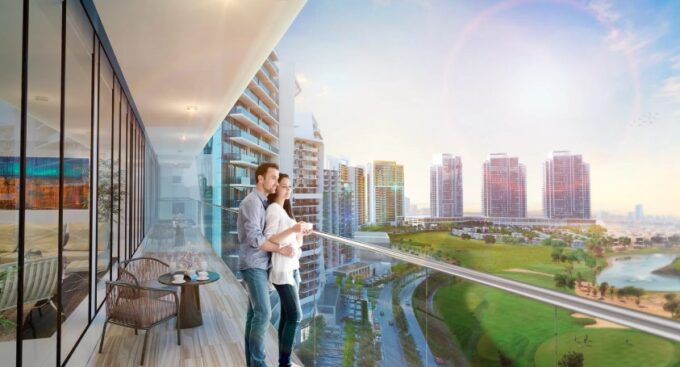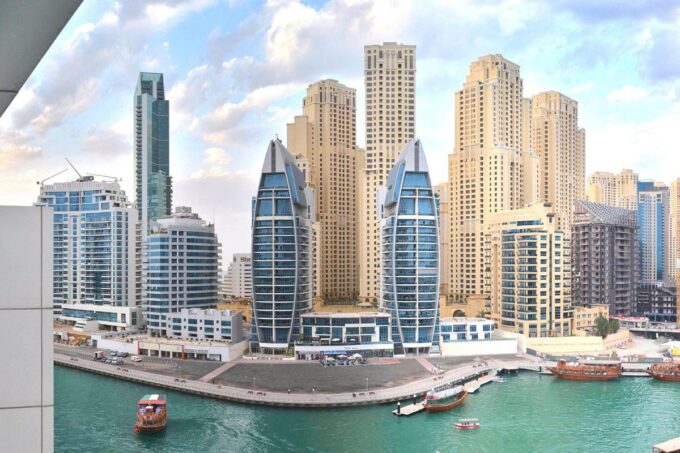If you’re serious about owning an apartment or villa in Dubai, here’s the short answer: yes, foreigners can legally buy property here — but you’ll want to know exactly where, how, and what hoops to jump through before signing anything. It’s not rocket science, but you can’t wing it either. Dubai welcomes overseas buyers with open arms, but a smooth purchase depends on knowing the rules and working with people who know the market inside out.
So, whether you’ve fallen in love with a beachfront penthouse or a sleek villa in the desert suburbs, here’s how to get it done right — with less hassle, more confidence, and hopefully no nasty surprises.
Where Foreign Buyers Can Legally Own in Dubai

Source: cityproperty.ae
First thing first — not every square inch of Dubai is fair game for non-UAE nationals. The government designates specific freehold areas where foreigners have full ownership rights. Outside these zones, you can’t own outright — at best, you might get a leasehold arrangement for a few decades.
A few popular freehold areas include:
- Dubai Marina: Waterfront apartments, great for professionals.
- Downtown Dubai: Home to the Burj Khalifa and Dubai Mall.
- Palm Jumeirah: An Iconic man-made island with luxury villas and high-end condos.
- Jumeirah Village Circle (JVC): More affordable, family-friendly community.
- Arabian Ranches: Suburban, villa-focused, green spaces.
If you’re after rental income, prime resale value, or a lifestyle move, choosing the right location is key. Think about access to schools, hospitals, work hubs, and airports. Many buyers get caught up in glossy brochures — but it’s the boring practical stuff that’ll matter day-to-day.
Figure Out Your Budget — All-In
Let’s talk money because buying property here isn’t just about the sticker price on the ad. There are extra costs that sneak up on buyers who didn’t read the fine print.
Plan for:
- Down Payment: Minimum 20–25% for ex-pats (can be higher for off-plan).
- Dubai Land Department (DLD) Fee: 4% of the purchase price, paid upfront.
- Agency Commission: Usually 2% the purchase price.
- Mortgage Fees (if using a loan): Bank processing fees, valuation fees.
- Ongoing Service Charges: Annual building maintenance fees vary by community.
If you’re paying cash, you skip mortgage headaches, but you still want enough in reserve for unexpected repairs, furnishing, or upgrades. Dubai landlords are usually on the hook for major maintenance, so factor that in too.
Mortgages for Non-Residents: Doable, But Be Prepared

Source: fasthypo.ch
You don’t have to be a UAE resident to get a mortgage here, but it helps. Non-resident buyers usually face stricter conditions:
- Many banks cap lending at 50%–60% of the property value.
- Interest rates can be higher for non-residents.
- More paperwork: banks want income proof, tax returns, bank statements, and credit history.
Some foreign buyers open a local bank account to smooth the process. If you plan to get a mortgage, sort it out early — a pre-approval letter gives you leverage when negotiating with sellers.
Work with Reputable People, Not Just Anyone
Dubai’s property market is modern and well-regulated, but that doesn’t mean you should trust every smiling agent you meet at an expo stand.
A good real estate agency in Dubai can make your life easier by shortlisting legit options, checking paperwork, and negotiating with sellers. You want an agency licensed by the RERA (Real Estate Regulatory Agency) — they’re the watchdog making sure everyone plays fair.
Some buyers go straight to developers, especially for off-plan projects, but even then, having an independent broker on your side can help you dodge hidden pitfalls.
Know What You’re Buying: Freehold vs. Leasehold
Don’t skip the fine print. Dubai has both freehold and leasehold properties.
- Freehold: You own the unit and the share of land it sits on.
- Leasehold: You buy the right to occupy the property for a fixed period, usually up to 99 years. After that, the land reverts back to the freeholder unless renewed.
Most expat buyers stick to freehold. It’s simpler, and you get full ownership rights, including the ability to resell or lease to others.
Legal Steps: Not as Scary as You’d Think
Buying here isn’t too different from buying in Europe or North America — just watch for the steps:
- Reservation Agreement: You sign a form and pay a booking fee (around 10% of the price) to lock the property.
- Sales and Purchase Agreement (SPA): This legally binds you and the seller. Double-check the terms — payment dates, penalties for delays, and handover dates if off-plan.
- NOC (No Objection Certificate): Seller gets this from the developer — it says they have no unpaid dues and the property can be transferred.
- Transfer: Both parties meet at the DLD trustee office to pay the remaining balance, transfer the title deed, and pay the DLD fees.
Keep copies of everything. You’ll need the title deed if you ever want to sell, remortgage, or transfer to heirs.
Think Long-Term: Rent, Flip, or Live In It?

Source: arabianbusiness.com
Be clear on why you’re buying. Some people snap up Dubai properties purely for rental yield — annual returns here can hit 5–8% for apartments in good locations. Villas are popular with families but don’t always get the same rental ROI as small flats in business districts.
Others want a holiday home, with plans to use it a few months a year. If you’re in this camp, check short-term rental rules. Dubai has clear rules on Airbnb-style lets — you’ll need a permit and must pay tourism fees.
Planning to flip? Off-plan projects can look tempting — early-bird discounts, payment plans — but they can be risky if the market cools or the developer faces delays. Always research the developer’s track record.
Fees Don’t End After You Get the Keys
A big surprise for many foreign owners: annual service charges. These cover the cost of maintaining elevators, pools, gyms, gardens, and security. For luxury apartments in Downtown or the Palm, fees can run thousands of dirhams a year per square foot.
Villas usually have lower shared costs, but you’ll shoulder maintenance of the property itself — pool upkeep, landscaping, and AC servicing. Dubai summers are no joke; AC breakdowns need fixing fast.
Staying on the Right Side of the Law
Dubai has a zero-tolerance approach to legal shortcuts. Always get your paperwork right — and pay fees on time. Failing to register your property properly or skipping permits for rentals can get you fined or, worse, blacklisted.
Practical Tips for First-Time Foreign Buyers
To wrap up, here’s a quick cheat sheet for avoiding headaches:
- Do your homework: Don’t buy the first property a flashy agent shows you. Compare communities, buildings, and resale trends.
- Visit in person: If you can, see it with your own eyes — photos can hide a lot.
- Check developer reputation: For off-plan, look at past handovers. Are they on time?
- Negotiate: Don’t accept the asking price blindly. There’s usually room to haggle.
- Hire a lawyer if needed: For complex deals or big-ticket villas, a local property lawyer can check contracts and protect your rights.
A Quick Look: Popular Freehold Communities
| Area | Property Type | Vibe | Who Loves It |
| Dubai Marina | High-rise apartments | Urban, nightlife | Young professionals, investors |
| Palm Jumeirah | Villas & condos | Luxury beachfront | Families, holiday homeowners |
| Downtown Dubai | Apartments | City center, iconic | Business ex-pats, tourists |
| Jumeirah Village Circle | Townhouses & apartments | Quiet, suburban | First-time buyers, families |
| Arabian Ranches | Villas | Gated, green | Families, long-term ex-pats |
Final Thoughts
In short — for many expats, yes. Dubai’s property market is one of the most transparent in the region. There’s solid rental demand, a clear legal framework, and new communities popping up all the time.
But it’s not just an investment — it’s your future home or income stream. Treat it like one. Work with reputable people, crunch the numbers, and don’t cut corners to save a few dirhams upfront.
Owning a slice of Dubai — whether it’s a sleek city apartment or a sprawling villa with a pool — can be rewarding if you go in with eyes wide open and a good plan.
If you’re ready to start hunting for keys to your new place under the Dubai sun — do it smart, and you’ll thank yourself later. Happy house hunting!







